Suffering God’s Wrath Lamentations 2
God bestowed privileges and promises on Israel that far exceeded those given to any other nation. He gave Israel a land flowing with milk and honey; blessed her cities, families, fields, and finances; and supernaturally intervened to give Israel victory over her enemies. He established Israel as a holy people and put the fear of them in the hearts of surrounding nations who held them in awe. (See Deuteronomy 28:1–13.) No other people had enjoyed such blessings and intimacy with God.
However, failure to keep God’s commandments evoked His wrath, and Israel suffered the numerous curses described in Deuteronomy 28:15–68. To enjoy blessing, she needed to obey the Lord and carefully observe all His commandments and statutes.
Soon after entering the land of Canaan, Israel failed to keep the commandments described in the Mosaic Covenant. The Lord graciously and lovingly sent prophet after prophet, warning Israel of the dire consequences of continuing to turn a deaf ear to His messengers.
One such prophet was Jeremiah, who predicted judgment on an unrepentant Judah. Judah did not heed Jeremiah’s warning; she continually mocked his message, despised and misused his words, and never repented of her sin. In time the cup of God’s anger grew full, and He poured it out on her (2 Chr. 36:14–21).
Jeremiah was there. He witnessed the horrible destruction and, in Lamentations 2, provided a detailed chronicle of Judah’s demise.
Jerusalem’s Destruction
Jeremiah’s lament began by expressing the Lord’s anger against Jerusalem:
How the Lord has covered the daughter of Zion with a cloud in His anger! He cast down from heaven to the earth the beauty of Israel, and did not remember His footstool [i.e., Temple or Ark of the Covenant] in the day of His anger (v. 1).
The Lord is not only a God of perfect love, but of righteous anger. God’s anger is a deliberate reaction to all that violates His holy nature. His anger is never explosive, unreasonable, or unexplainable. Rather, it is His firm expression of real displeasure with man’s wickedness and sin. He cannot and will not remain neutral and impartial in the presence of continued sin.
In other words, God’s anger against Judah was not hidden or arbitrary. When God expresses His anger, He does so in a moment. It passes quickly; and His love remains, along with His mercy and compassion (Ps. 103:8–9).
Jeremiah pictured the Lord hurling Jerusalem down to the depths of ignominious destruction from the height of its beauty and glory. The cloud of His Shekinah glory, which once filled the Temple that was “His footstool,” was removed and replaced by the “cloud” of His anger (v. 1). Jerusalem was “swallowed up” (vv. 2, 5) by God’s anger and divested of its God-given privileges and preferential protection. The Lord himself “purposed” Jerusalem’s demise (v. 17).
Jeremiah pictured the Lord as a mighty, warring adversary who, armed with both bow and sword, destroyed all who were once “pleasing to His eye” (v. 4).
The prophet mentioned three areas of destruction.
(1) Jerusalem and Judah. The phrase daughter of Zion (v. 1) refers to the city of Jerusalem. The Lord’s wrath was poured out on its “strongholds” (vv. 2, 5), destroying its “wall” (v. 8), “gates” (v. 9), “dwelling places” (v. 2), and “palaces” (vv. 5, 7). God’s wrath was like “a flaming fire” (v. 3) that swept through a city, devouring everything in its path. All of Jerusalem was systematically destroyed. Like a builder stretching out a line to measure off an area being built, the Lord “stretched out a line” (v. 8) to destroy Jerusalem.
One month after the city’s fall, Nebuzaradan, captain of the royal guard, entered with orders to destroy everything. On August 14, 586 B.C., he systematically dismantled Jerusalem as described in 2 Kings 25:8–17. First, he burned all the houses to the ground. Next, the Babylonian army tore down the walls and gates surrounding the city. Then Jerusalem’s population was marched off to Babylon; only poor farmers were left to till the land. And last, the Temple treasures were carted off to Babylon. The Law was no more, and prophetic revelation was gone (v. 9).
(2) Jerusalem’s leaders. “He has cut off in fierce anger Every horn of Israel” (v. 3). The word horn symbolizes Judah’s powerful leaders (king, princes, priests) who were either killed or carried off as slaves to experience 70 years of Babylonian captivity (vv. 6, 9).
(3) Judah’s Temple and ceremonial worship. Such words as tabernacle, place of assembly, appointed feasts, Sabbaths (v. 6), altar, and His sanctuary (v. 7) describe Judah’s worship, which the Lord destroyed. The word tabernacle refers to a small booth that protected farmers from the sun while they worked in their fields, or a booth constructed at the Feast of Tabernacles. The Lord destroyed Solomon’s Temple, with its feast days and worship, as easily as a person would dismantle a temporary booth.
Judah’s “elders” and “virgins” cried out in mourning (v. 10). That is, all lamented the Temple’s destruction, from the oldest person to the youngest. From then on, people wore sackcloth; threw dust on their heads; and sat on the ground in stunned silence, overcome by grief.
Jeremiah’s Dirge
Jeremiah had warned Judah with tears and anguish of heart concerning its coming judgment: “my eyes fail with tears, my heart is troubled; my bile [liver] is poured on the ground” (v. 11). but none heeded his message. Yet the prophet did not gloat over the destruction. In fact, he grieved more.
The prophet provided five pictures of what he saw in the aftermath of the 586 B.C. holocaust. First, he described the death of infants and children who cried out for food in the arms of their mothers as their lives ebbed away in the streets of Jerusalem (vv. 11–12).
Second, he described Judah’s distress and devastation (v. 13). Jeremiah asked four questions in verse 13 as he searched for the words to express the enormity of Judah’s devastation and bring comfort to his people:
How shall I console you? To what shall I liken you, O daughter of Jerusalem?What shall I compare with you, that I may comfort you, O virgin daughter of Zion? For your ruin is spread wide as the sea; Who can heal you?
Jeremiah said Judah’s ruin “is spread wide as the sea,” meaning its devastation was incomparable and immeasurable.
Picture three is of the deceptive message of the false prophets (v. 14). Judah was misled by men who told the people what they wanted to hear. Instead of preaching judgment, they preached lies of peace, comfort, and prosperity (Jer. 23:25–26; 28:1–4, 10–11; 29:29–32). Their messages lulled Judah into a false security.
The fourth picture is of people deriding Jerusalem after its destruction (vv. 15–17). Those who traveled by this once beautiful and secure city stood in awe at its total destruction. Judah’s enemies took pride in its destruction with malicious joy: “All who pass by clap their hands…hiss and shake their heads” in sarcastic scorn (v. 15). No pity was shown to Judah, as God did “what He purposed” (v. 17).
Moses had prophesied that Judah’s enemies would rejoice over her destruction and ridicule the Jewish people throughout the nations where God would drive them (Dt. 28:37).
A despairing dirge is the fifth word-picture Jeremiah drew (vv. 18–19). He called on distraught Judeans to cry out collectively to God because He alone could bring relief: “O wall of the daughter of Zion, Let tears run down like a river day and night” (v. 18). He implored the nation to surrender its entire being to God in prayer: “heart,” “eyes,” and “hands.” One focus of supplication was to be for the survival of the children who were perishing from starvation. Jeremiah had already begun praying for them (v. 11).
Judah’s Destitution
In the closing verses of his second dirge, Jeremiah’s prayer seemed critical of God for the misery He had brought on Judah. but in actuality, it is a reminder: “See, O Lᴏʀᴅ, and consider! To whom have You done this?” (v. 20). Jeremiah reminded God that He had not afflicted a heathen nation, but His beloved people whom He had chosen and with whom He had enjoyed an everlasting covenant relationship. To allow such devastation was against the moral order and the covenant He had made with Israel.
Jeremiah went on to question if it was morally right to bring Jewish mothers so low that they committed the reprehensible act of eating their own children in order to survive (Moses had predicted this would happen, Lev. 26:27–29; Dt. 28:53–57) and to allow the bodies and blood of dead prophets and priests to pollute the Temple (v. 20).
Jeremiah entreated the Lord to remember His promises to Israel during this time of anger and slaughter. He cried out to God to look on the depth of Israel’s suffering, stop the carnage, and show mercy.
Jeremiah concluded this chapter with a lamenting word. He pictured Judah’s enemy as an invited guest to one of the feast days in Jerusalem. Although not mentioned by name, the “guest” was the Babylonian Empire. The babylonians surrounded Jerusalem and struck “terrors” in the hearts of the Jewish people because it was “the day of the Lᴏʀᴅ’s anger” (v. 22).
History recorded that the Babylonians completely dismantled Jerusalem. “There was no refugee or survivor” who escaped the effects of the invasion (v. 22). God showed no partiality; “young and old” alike were slaughtered (v. 21). The Babylonians were the human instrument God used to carry out His divine judgment.
This tragedy was not the last such holocaust the Jewish people would suffer. In A.D. 70 and 135 the armies of Rome again destroyed the Jewish people and Jerusalem. During the Middle Ages, European crusaders annihilated Jewish villages on their way to liberate Jerusalem from the muslims. From 1933 to 1945, the Nazis murdered 6 million Jewish people—one-third of world Jewry. Sad to say, Jerusalem will again be trampled; two-thirds of Israel will not survive the Great Tribulation (Zech. 13:8).
Jeremiah asked, “Is it nothing to you, all you who pass by?” (1:12). The answer should be no; it is not “nothing.” Knowing what lies ahead, we need to show sincere love to our Jewish friends and help them find peace in their Messiah.
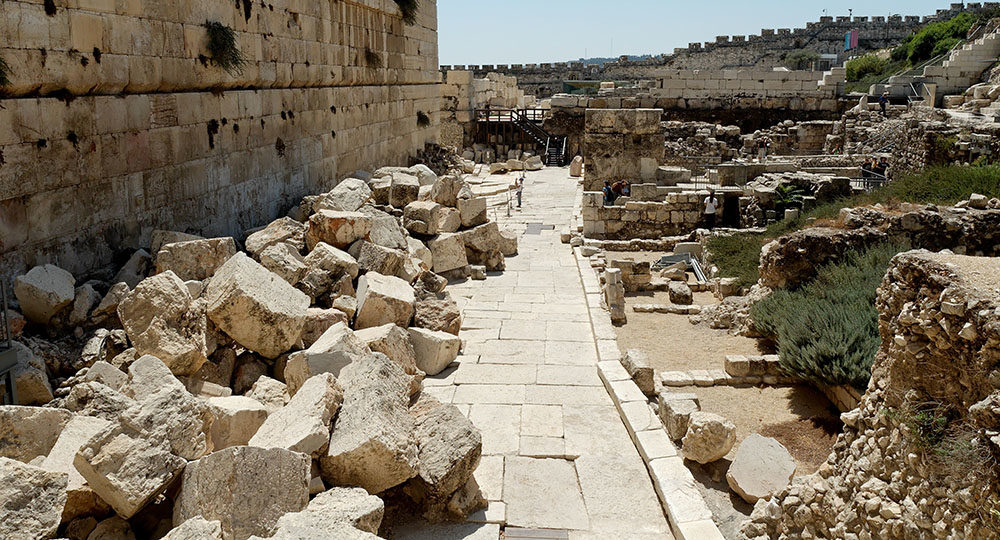
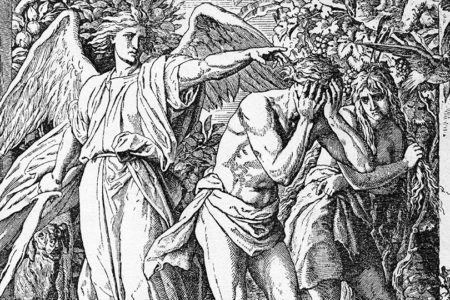
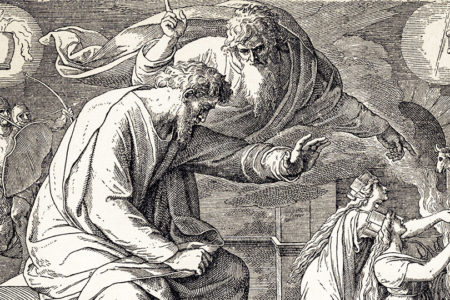
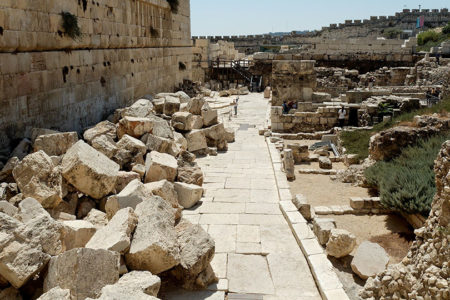

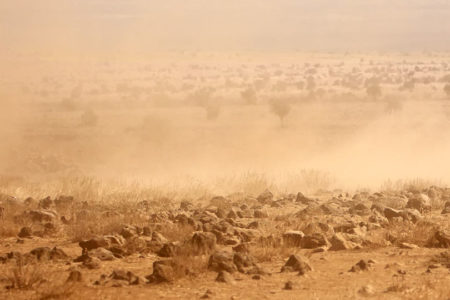


Thank you. This was very helpful as I try to study Lamentations.
I continue to have many questions and have been using Matthew Henrey’s commentary.
Was the Ark of the Covenant destroyed when the Temple was destroyed or was it carried into Babylon?
I am 77 years old and as a child, I remember a pastor saying that God carried the Bible up to Heaven and now the Earth became God’s footstool. I find this hard to believe.
Can you direct me to scripture that will help me learn more about the Ark of the Covenant?
Thank you,
Dorothea Brittin-Turner